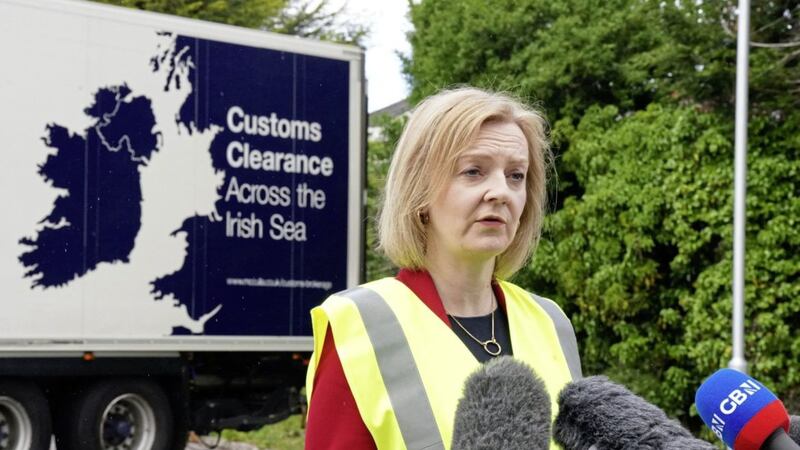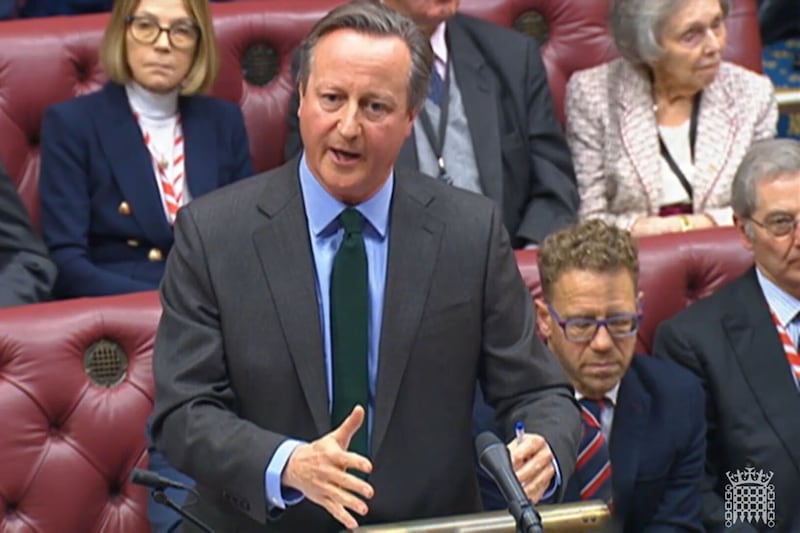THERE was no shortage of hype on all sides ahead of yesterday's tabling of the British government legislation on the protocol. Less than 18 months since this key component of Boris Johnson's "oven ready" deal was first implemented, the British government has decided that it isn't working out as they'd envisaged. Their argument is essentially that they believed a bloc continually derided by Brexiteers for its red tape and robust controls would've somehow applied soft touch regulation at the Irish Sea border. It's far from a convincing excuse to turn your back on a binding agreement and risk becoming an international pariah but then so many elements of this saga don't quite add up.
The main thrust of the legislation has been leaked and flagged up over recent weeks, so there were no surprises in its contents. It's also important to note that this is effectively a series of proposals that must make the arduous passage through Westminster, potentially being tweaked or even neutered along the way. Once it's made its way onto the statute books, it is then up to the British government to apply it, either in part or in full.
Given the vulnerability of Boris Johnson's premiership, you'd no doubt get reasonably long odds on him still being in office when we reach that future point where the British government decides to go nuclear by utilising this legislation to escalate its disagreement with the EU. The Tory leader yesterday described his government's plans as "no big deal" and possibly in a year or so's time we may all share that view.

But this extended timescale gives currency to the argument that this row with Brussels is largely manufactured and has little to do with resolving the real difficulties around the protocol. The option to trigger Article 16 has been there all along yet that would be within the existing framework and arguably not gung-ho enough for the European Research Group. Instead they've opted to draft bespoke legislation that involves a number of unpopular unilateral actions rather than negotiation, a tactic that may well succeed domestically but would surely have serious consequences for the UK's reputation on the world stage, against the backdrop of conflict in Ukraine and a looming recession.
There's also a consensus that says it would be bad news for the Northern Ireland economy. It appears Mr Johnson is happy to engage in sabre-rattling to shore up his leadership, while foreign secretary and potential successor Liz Truss appears to wallow in the 'Iron Lady' comparisons. They pay lip service to restoring stability at Stormont yet fuel mistrust and suspicion with every utterance.
How much the publication of the legislation changes the situation at Stormont is debatable. The DUP set a high bar with its seven tests for the removal of the Irish Sea border, while the Lucid Talk-Belfast Telegraph poll last week suggested its base has become convinced by the stance Sir Jeffrey Donaldson has adopted.
An immediate climbdown was always unlikely but you have wonder at what point the DUP leader feels British government deeds actually match its words. Either Sir Jeffrey readies himself for a long wait or he prepares to deflect the inevitable accusations of sell-out that will come from his right. The DUP was keeping its powder dry yesterday, sending Sammy Wilson out to bat armed solely with a few oft-repeated sweeping accusations about the post-Brexit trade arrangements.
Reports have suggested that the party will be expected to at least elect a speaker as a demonstration of some goodwill but the DUP's previous experience would indicate that it will need something more substantial before even partially lifting its boycott. However, the public's patience will surely wear thin given the glacial pace of developments, something the DUP must be wary of it is contemplating another election.
Meanwhile, Sinn Féin, Alliance and the SDLP, a coalition representing a strong majority in the assembly, joined the general disillusionment and bewilderment that has descended across Europe in response to the British government's antics. The EU has made it clear that it is willing to engage yet its offers are continually spurned in favour of politiking, while the goalposts are shitfted to make Brussels appear inflexible.
In the grand scheme of things, nothing has actually changed in the past 24 hours, nor is likely to change in the weeks and months ahead. However, a Tory adminstration that little over a week ago was facing a major crisis has succeeded in distracting everybody.








